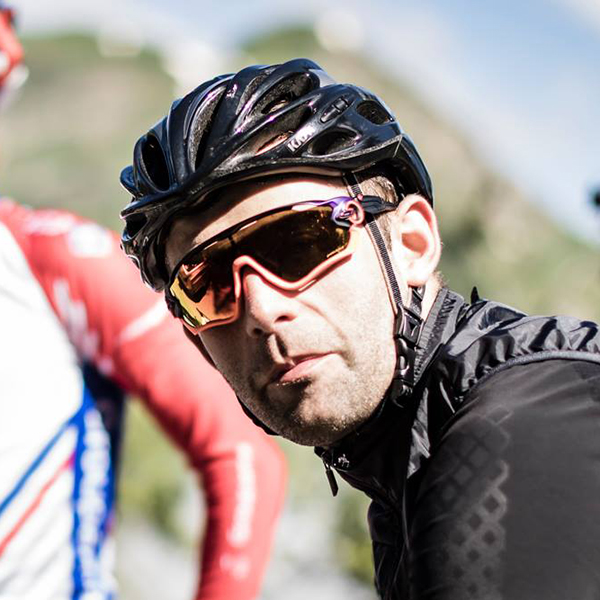SQUIRREL_13114214
The ENVE SES 4.5 wheelset follows an almost no-compromise design in its pursuit of speed.
It isn’t the lightest or deepest wheelset on the market today, and there are others in the SES range that are certainly more specialised.
However, for road riders, ENVE says its SES 4.5 wheelset is the top dog in its pursuit of ‘real world speed’.
I’m hard-pressed to disagree. The ENVE SES 4.5 wheelset is quite possibly the best-performing mid-depth carbon wheelset I’ve ever ridden.
Whether it provides value for money, though, is another question.
ENVE SES 4.5 wheelset details and specifications
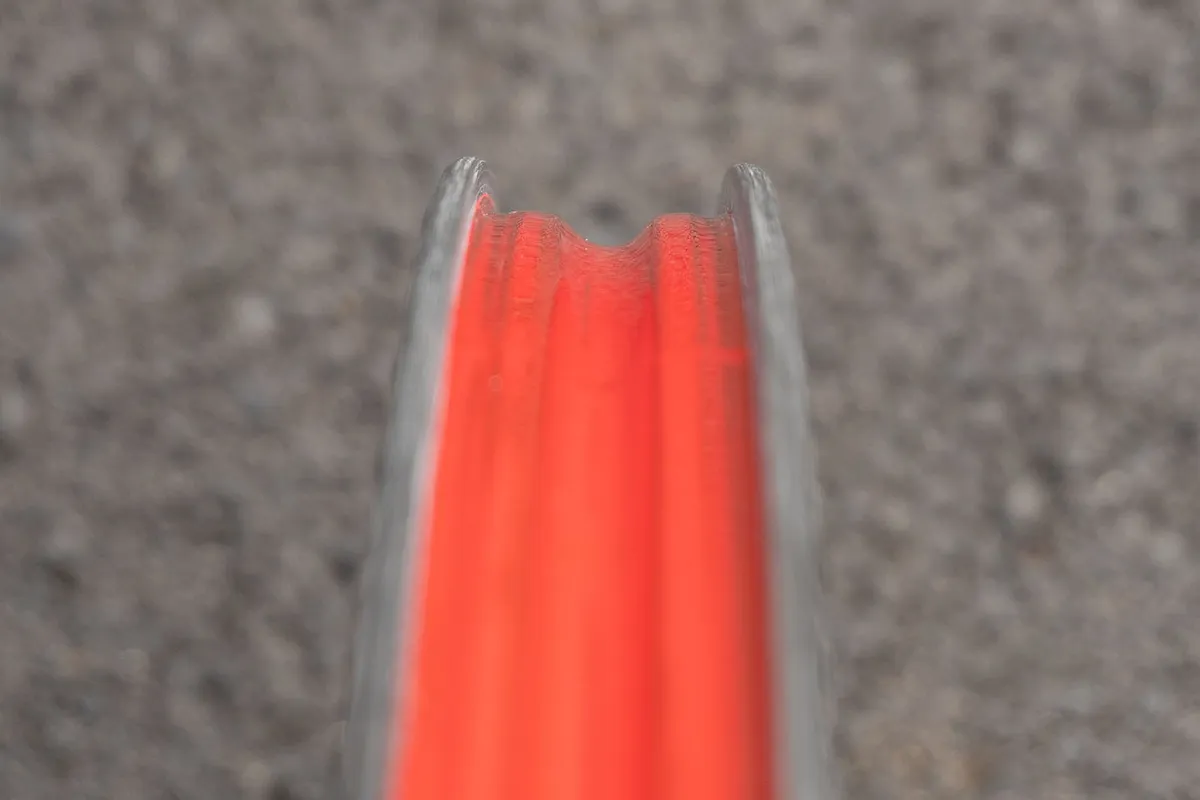
The ENVE SES range was updated in mid-2022, simplifying the brand's top-tier line-up compared to previous generations.
The range comprises four wheelsets: from the shallowest, lightest 2.3, up to the deepest, most aerodynamic 6.7.
The 4.5 on test here sits in the middle ground, slightly deeper, but heavier, than the 3.4. ENVE claims it best hits the sweetspot between aerodynamic performance and stability, weight and versatility for fast road riding.
ENVE says it tests its wheelsets at the industry-ballpark 30mph/48kph, plus at 20mph/32kph – all the better, it claims, to optimise for the speeds people actually ride at.
The rims follow a mullet principle – a deeper 55mm profile at the rear is paired with a 49mm-deep rim at the front.
The theory goes that because it's less 'vulnerable’ to crosswinds, the rear wheel can be deeper and therefore more aerodynamically optimised. The front wheel is shallower to help improve handling on windy days.
BikeRadar testers (myself included) have had positive experiences with such a design on Roval’s Rapide CL II and Rapide CLX II wheels, as well as Parcours’ Strade wheelset.
The Roval wheelsets also have varied rim widths, but the SES 4.5 hoops feature a consistent 25mm internal width, and 32mm external width front and rear.
Both measurements are on the wider side of what’s currently considered progressive for road bike wheels, straying into gravel territory.
ENVE says going wider leads to a whole host of benefits, including the ability to run wider tyres at lower pressures in an aerodynamically efficient setup.
You could also, if you wanted, run the SES 4.5 wheelset on a gravel bike with up to 700 x 50c tyres. That said, ENVE warns that the use of 33c rubber and wider negates the aero performance of the wheels, and suggests its G Series wheels are a better bet for gravel riding.
The SES 4.5 wheelset is said to be optimised for 27 to 29c tyres, with the rim tested using ENVE’s own 700 x 27c SES tyres.
The rims are hookless, so whichever tyre you choose to run, it’ll need to be tubeless (although there’s nothing stopping you running those tyres with a tube).
For the latest iteration of the SES range, ENVE says it has updated the carbon layup to save weight (without dropping stiffness) and incorporated a ‘Wide Hookless Bead’. This is claimed to reduce the chances of a pinch flat by distributing the impact of the rim against a compressed tyre over a larger area.
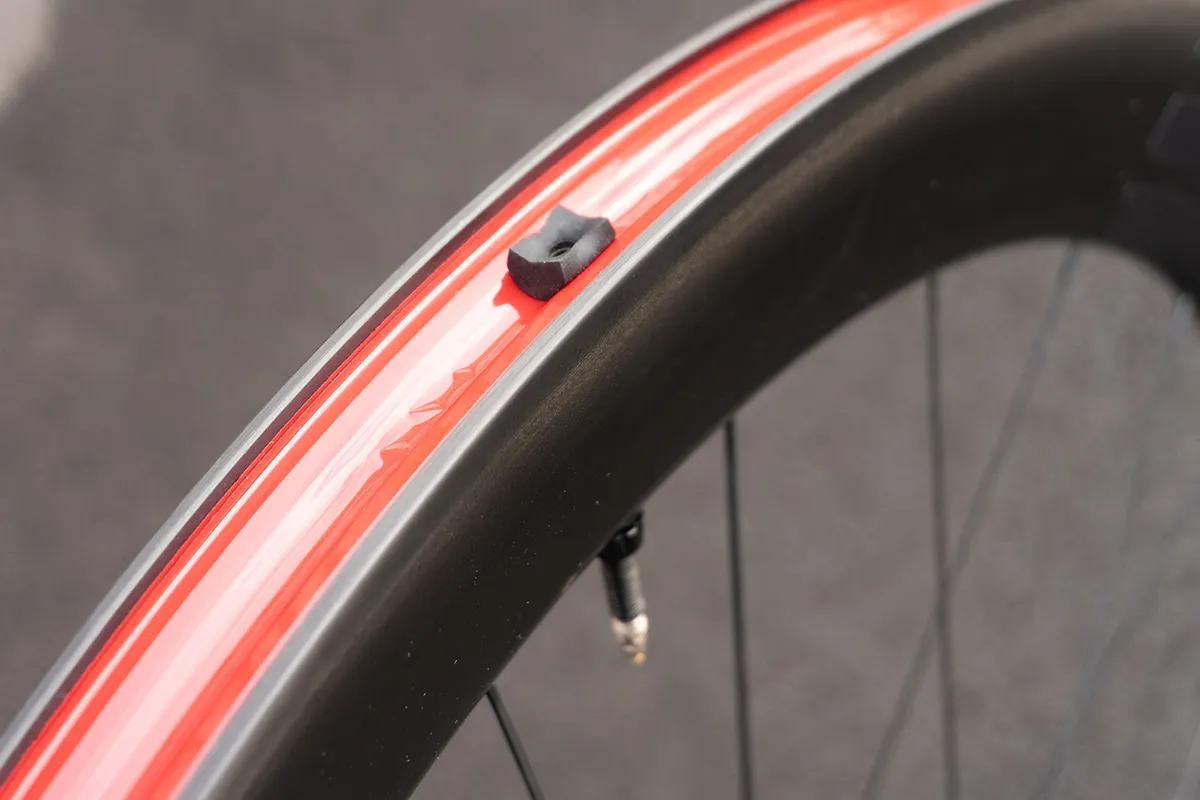
Sapim CX-Ray J-bend aero spokes lace the rims to ENVE’s own alloy hubs, which feature a 'flower petal' flange design said to minimise excess material (and therefore weight).
The freehub uses the Mavic-developed ID360 ratchet system, with a 40t engagement. ENVE says it prefers using ratchets over a pawl-based system, claiming they offer durability benefits and improved preservation of bearing efficiency.
ENVE uses stainless steel bearings made by NTN here, and double-seals them to prevent ingress.
Despite the extra weather-proofing, ENVE says these bearings are “faster than most ceramic bearings”.
As a result, it says speccing ceramic bearings wouldn’t be worth the additional cost to the rider (given the increased expense, and associated tolerances and maintenance requirements to maximise their performance).
Nevertheless, you can upgrade the ENVE hubs with CeramicSpeed bearings with a special kit, while ENVE wheels can be built up with your choice of hubs – depending on your locale – should you wish to eke out every last fraction of efficiency (cost be damned).
Even with steel bearings, the SES 4.5 wheelset costs an eye-watering £3,350 ($2,850/€3,250). That places it among the most expensive road bike wheelsets available today.
Compare it to Roval’s Rapide CLX II wheelset at £2,500 (never mind the £1,000 cheaper CL II), or Hunt’s 48 Limitless UD Carbon Spoke Disc wheelset at £1,449.
It does more or less match Zipp’s top-tier 454 NSW wheelset for price, but it’s clear those looking for the best-value aero upgrades should look elsewhere.
Unless, of course, the bang is far more important than the buck.
For the record, my test wheelset weighed in at 1,538g including tubeless valves and rim tape. The Rapide CLX II wheelset undercuts this by 18g, but weight is by no means king in an all-round wheelset such as this.
ENVE SES 4.5 wheelset performance
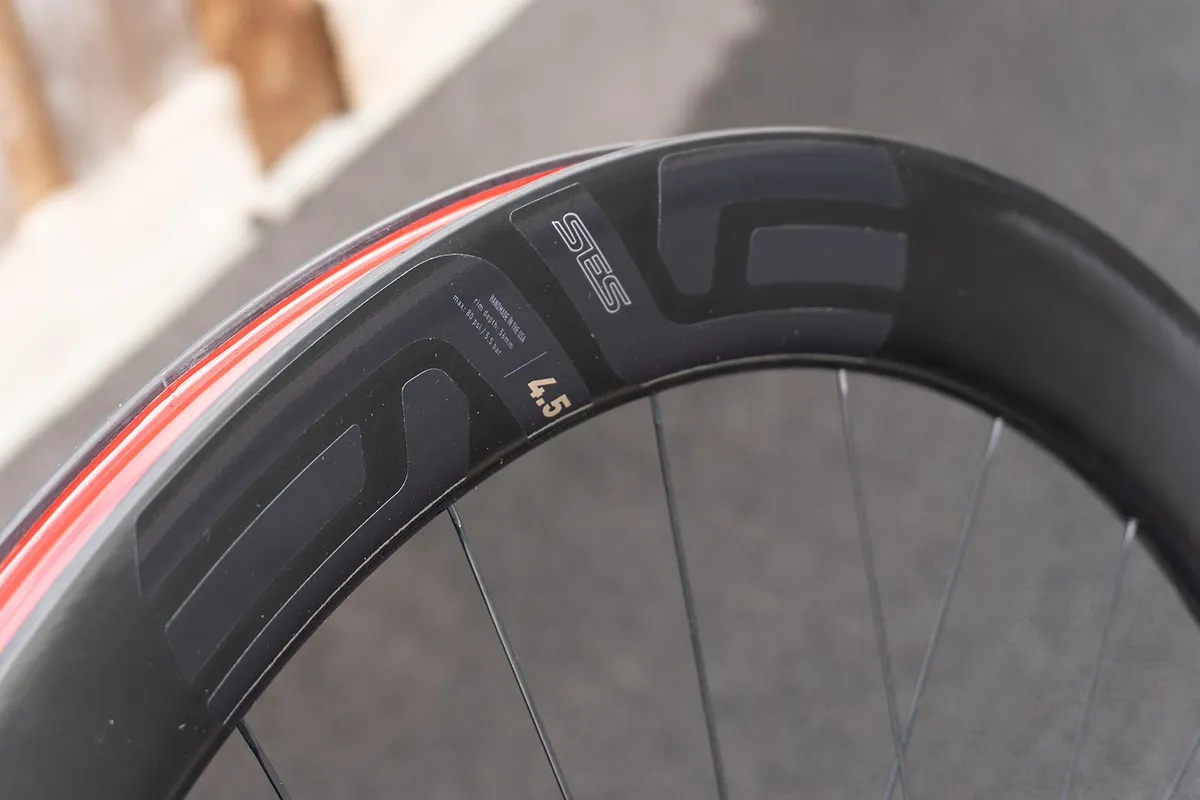
In my mind, there’s no doubt the ENVE SES 4.5 is one of the fastest all-round wheelsets I’ve ever ridden.
Considering the £3,350 price tag, I hoped for as much, and anyone spending such money should rightfully expect top-level performance.
However, to judge value in a £3,350 wheelset is something of a fool’s errand. I will say it's extremely expensive and let you judge if you have such a budget to spend on it.
The fact that UAE Team Emirates opted to partner with ENVE for its SES wheelsets (and more besides) for 2023 is a sign that the package suits top-level racing.
Tadej Pogačar rode the SES 4.5 wheelset to victory in the 2023 Tour of Flanders – although that’s clearly more down to the rider than the wheelset itself. Nevertheless, the team appears to have done its research and decided these are the right wheels to serve one of the best riders in the world.
More pertinently to everyday riders: the SES 4.5s are very impressive around the speeds ‘ordinary’ riders such as myself tend to ride at, providing credence to ENVE’s claim that it also tests its wheels at lower speeds.
From the get go, the SES 4.5 wheelset feels incredibly efficient, smooth and stable.
The wide rims make progress serene when paired with the best road bike tyres, such as 28c Continental GP5000 S TR tyres (which blow out to 30mm at 70psi).
This means you have to work less hard to overcome pimply tarmac, which fundamentally translates into a faster ride (all other things being equal).
The wide-arching rims seem almost impervious to crosswinds, with only particularly strong gusts unsettling the ride.
When conditions are calm, they feel incredibly fast. Once you’ve accelerated up to 30-35kph, it’s noticeably easy to stay there, while efforts at even higher speeds seem easier than usual.
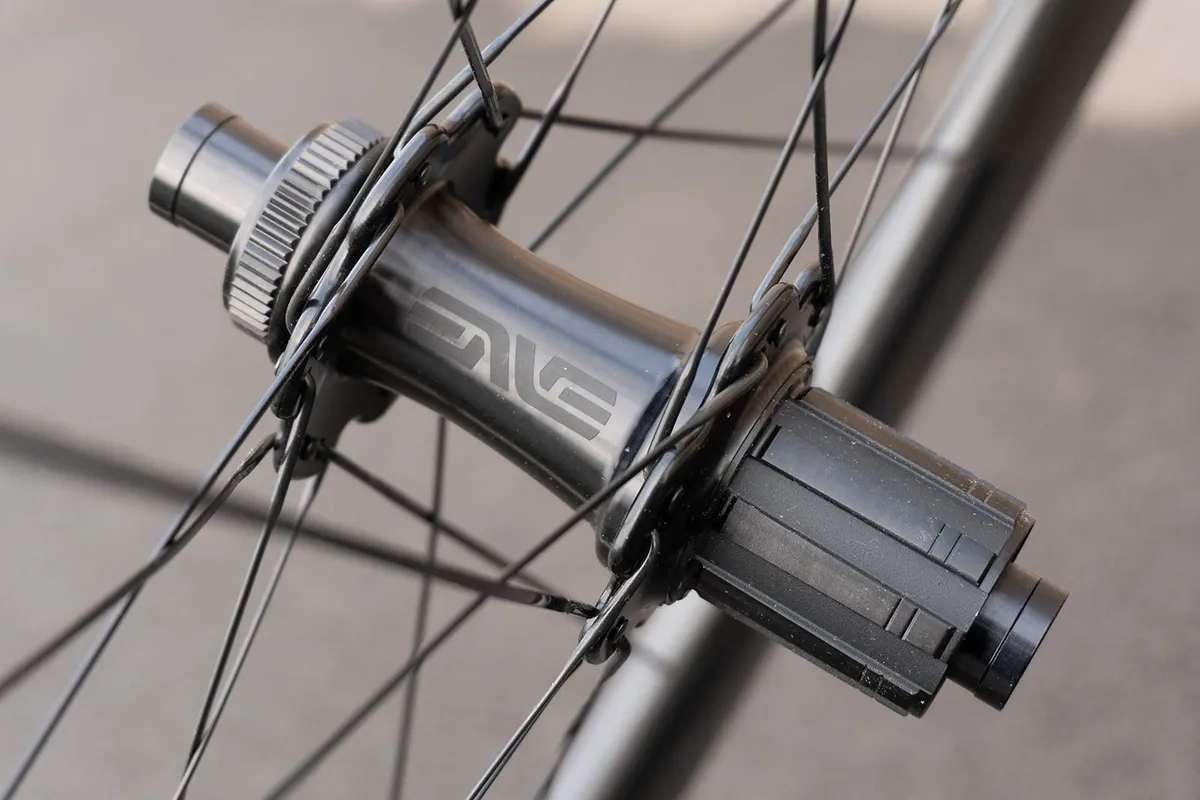
Ceramic bearings (such as those found in Roval’s Aeroflange hubs fitted to its Rapide CLX hoops) might theoretically improve rolling efficiency further – plus go some way to justifying the price tag. However, I’d be lying if I said I agreed confidently that it would make any noticeable difference.
Although my fitness was on an upward trajectory during testing, I saw more competitive Strava segment times throughout the test period for similar efforts compared to my times using other wheelsets.
Other factors may have influenced the results, but these wheels certainly feel fast.
Mavic’s ID 360 hub internals and the 40t ratchet system engage and pick up satisfyingly quickly when you happen to freewheel then pick up the cadence again. I also like the dull freehub noise it makes.
This responsiveness pays dividends on climbs, when the reactions are sharp and your efforts yield instant results. Unless the terrain was especially steep – I’d estimate in the region of 10 per cent or steeper – I didn’t notice the 1,538g weight under my benchmark tubeless tyre and sealant choice.
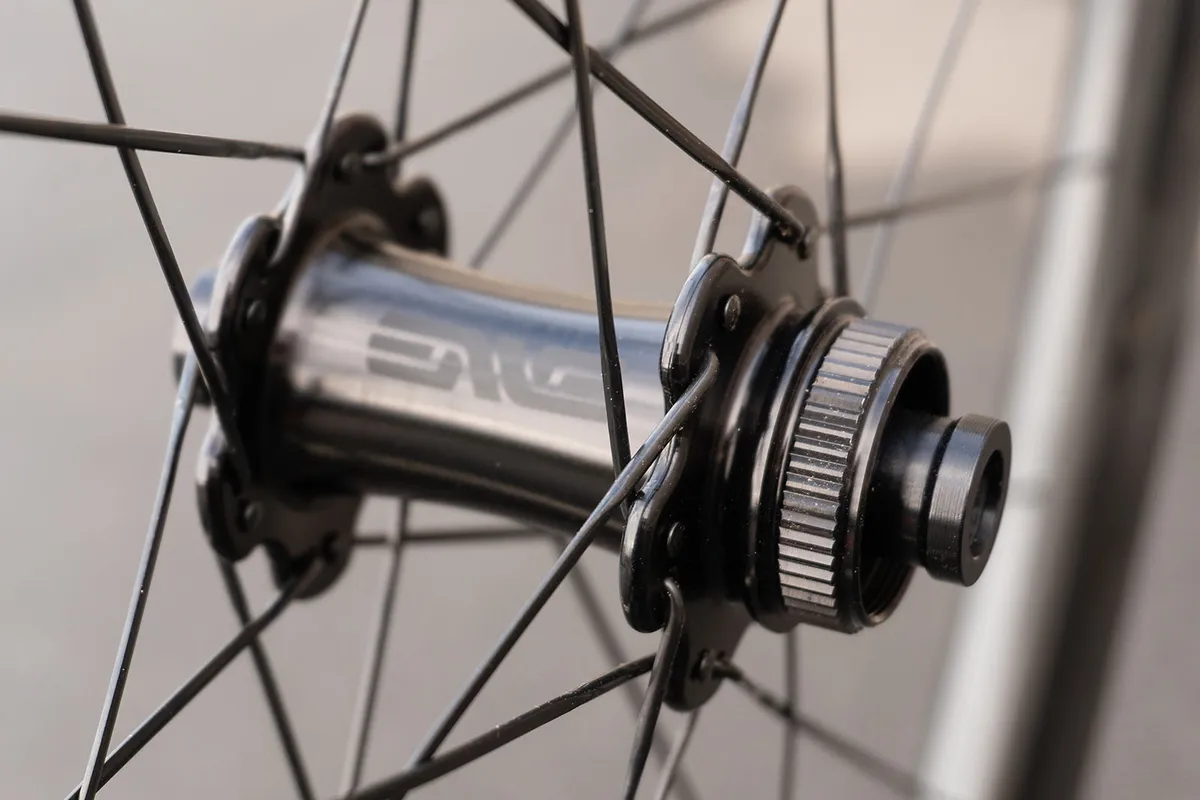
If the ascent features a pimply, broken tarmac surface (they often do on my test loops), the smooth ride quality helps to ease the effort a little.
On descents, the wide tyre profile afforded by the rim offers up confidence that your chosen rubber will stick. Different tyres respond differently to different rim profiles, but the Continentals I used for the majority of testing felt like a perfect match.
I also mounted ENVE’s 29c SES tyres (which I’m told are roughly equivalent to my 28c GP5000 S TRs). Both mounted about as easily as each other, requiring a tyre lever to pry the last section of bead over the rim. They inflated similarly wide too.
Overall, though, my lasting memory of the SES 4.5 wheelset isn’t of sheer speed or efficiency, but of all-round riding ease.
Even with a convergence of technologies and designs that seem to make many carbon wheelsets feel incredibly similar, the SES 4.5 stands out.
It’s just as well, given you have to pay through the nose for it. But it bodes well for all-round speed and enjoyment if it makes your ride easier (or faster for the same effort).
Given free choice (and an open wallet), this would be the wheelset I’d select for a long sportive or an all-day weekend ride, and probably find myself leaving it on my bike for training rides.
Once you’ve got used to how the SES 4.5 rides, it’s rather difficult to stop using it.
ENVE SES 4.5 wheelset bottom line
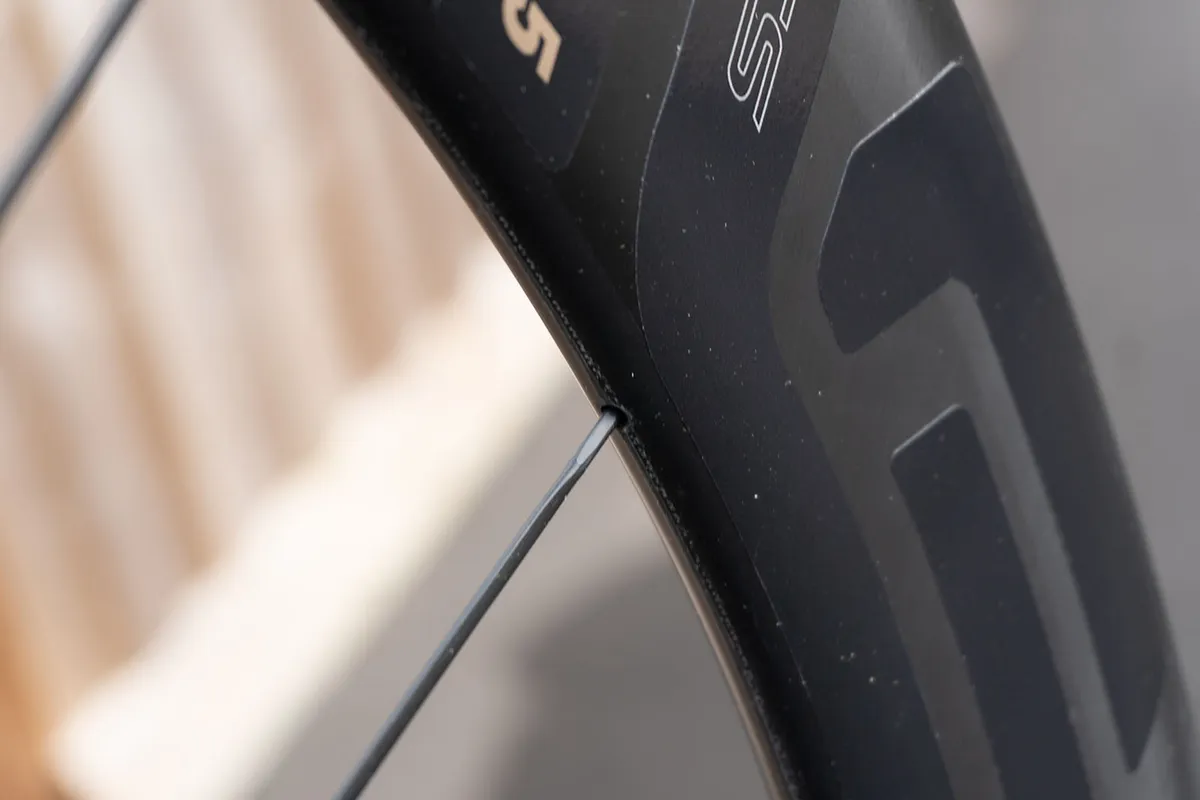
The ENVE SES 4.5 wheelset can’t reasonably be called ‘good value’.
It performs as though it belongs on the top shelf of carbon wheelset design, but the £3,350 price tag will put it out of reach of many riders.
Ignoring price, though, it offers smooth and serene performance, and makes riding over varying road terrain easier and faster. Pogačar might be reaping the benefits this season, but everyday riders could arguably reap even more, given ENVE’s more modest speed optimisations.
It’s fast on the flat, fast on climbs, fast on descents, and incredibly easy to ride in challenging conditions. It achieves all of this in a way that I think saves energy and effort along the way.
I’m hard-pressed to think of many (if any) better all-round performance wheelsets.
Product
| Brand | enve_composites |
| Price | 3250.00 EUR,3350.00 GBP,2850.00 USD |
| Weight | 1538.0000, GRAM (29in) - with tubeless valves and rim tape |
Features
| br_rimMaterial | carbon |
| br_wheelSize | 29in_700c |
| br_brakeTypeSimple | disc |
| br_hubs | ENVE Premium Road Disc |
| br_spokes | Sapim CX Ray, J-bend |
| br_freehub | Shimano |
| br_rimInternalWidth | 25 |
| Features | Depth: 49mm front, 55mm rear Width: 32mm external Axle: 12×100mm front; 12×142mm rear |
| br_spokeCountRear | 24 |
| br_spokeCountFront | 24 |
SQUIRREL_13114214
